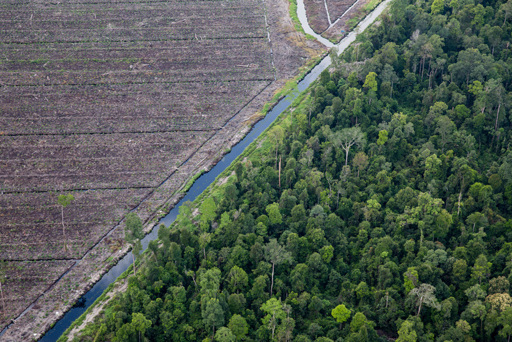JAKARTA — The world’s largest sustainable timber label is under fire for revising how it applies its rules on corporate accountability — a move activists say could let forestry giants long tied to deforestation and land conflicts rebrand themselves as “green.” The Forest Stewardship Council (FSC), which certifies wood and paper products worldwide, confirmed to Mongabay that it has revised its internal guidance on the scope of a company’s “corporate group.” The concept is central to the FSC’s rules because it determines how to deal with a company that’s certified if one of its uncertified subsidiaries, suppliers or affiliates is found to have committed forestry violations. The FSC’s corporate group definition is currently based on the standard of “common control” drawn up by the Accountability Framework Initiative (AFi), a collaborative effort by 25 NGOs to build and scale up ethical supply chains for agricultural and forestry products. “This work considers the learnings to date on identifying and concluding the scope of the corporate group and builds on the strengths of the [AFi’s] definition,” the FSC said in a statement. “This is not the same as reviewing the definition itself.” The distinction matters because under the FSC’s Policy for Association and Remedy Framework, an entire corporate group can be held accountable for destructive practices like illegal logging, human rights abuses, or deforestation by any of its members. Under the remedy framework, firms that have lost their FSC certification, or been “disassociated,” can only return to the FSC fold if they make…This article was originally published on Mongabay
From Conservation news via this RSS feed


